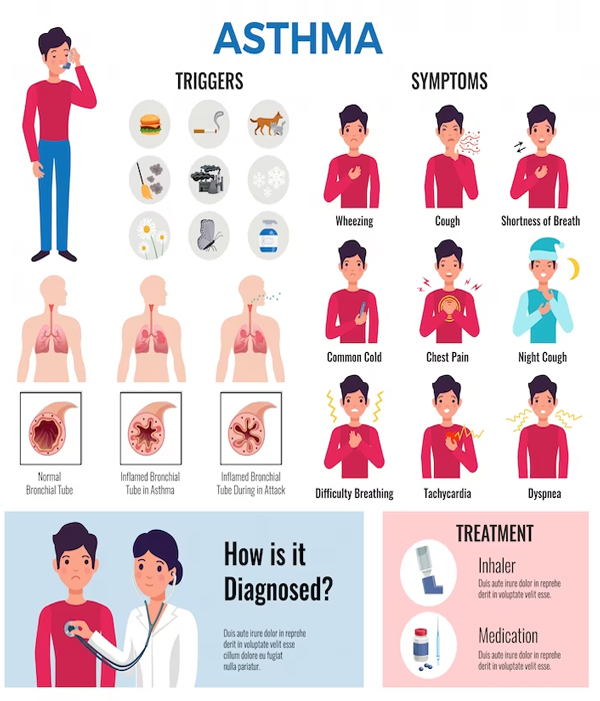Description
- Blood Glucose Fasting & Post Prandial
- HbA1c
- Creatinine
- Lipid Profile
- SGPT
- SGOT
- Urine Albumin Creatine Ratio
- HB , PCV
FBS / fasting blood sugar test is blood test checks fasting blood sugar levels. Test done on fasting for ( 8-10 hours ). This test used to screen for pre-diabetes and diabetes. Also check the efficiency of medication/dietary changes were diagnosed with diabetic patient. Reference range less than 100 mg/dL. Pre-diabetes 100-125 mg/dL, diabetes more than 125 mg/dL.
PPBS/postprandial blood glucose test is a blood test measures glucose levels and bled after 2 hours of last meal. These tests to check how the body response to sugar/starch post meal. Reference ranges 100- 140 mg/dL
HBA1C testis a blood test that shows what your average blood sugar (glucose) level was over the past 2-3 months. High levels are sign of high blood glucose from diabetes and it is used to screen type II diabetes and prediabetes. Normal range of an adult is 5.7%. Range in pre-diabetes is 5.7% -6.4%. Higher diabetes is more than 6.5%.
kidney function test requires both the urine sample and blood sample. It includes following tests Blood Urea Nitrogen (BU N), creatinine (serum), creatinine clearance, creatinine urine. All these tests are done to check kidney function. Serum creatinine levels are elevated not only in kidney problems but also in muscle disorders and massive accident. Symptoms of kidney disorder include decreased urine output, body swelling, weakness, salt like crust on body, headache.
lipid profileis a blood test done to measure each type of cholesterol. Lipid profile includes total cholesterol, low density lipoprotein (LDL), high density lipoprotein( HDL ), Triglycerides (another type of fat in your body), very low density lipoprotein (VL d l). It is done at an earlier age if you have diabetes, heart disease, stroke, high blood pressure, strong family history of heart disease . Follow up testing should be done for risk persons to prevent heart attack.
liver function testis also known as Liver Panel. There are blood test that measured different enzymes, proteins, other substances made by liver. These tests check overall liver functions. That different substances are treated on a single blood sample at same time. These include albumin, total protein, ALP (alkaline phosphatase), ALT (alkaline trans Meniere’s, AST (aspirated aminotransferase), GG t (gamma glutamyl transferase), serum bilirubin, lactose dehydrogenase (LDH), prothrombin time (PT ). Symptoms of liver disease includes jaundice, nausea, vomiting, diarrhea, abdominal pain, dark colored urine, light colored stool, fatigue
complete urine examinationis a test for urine. It is often done to check for urinary tract infections, kidney problems, diabetes. It involves checking urine for sugars in diabetes mellitus , protein in kidney problems , ketones in starvation and diabetes ketoacidosis , bilirubin for jaundice , cells for cancer , crystals for cancers , bacteria for urinary infections
hemoglobin (Hb) hemoglobin test measures the level of hemoglobin in your body. If your hemoglobin levels are abnormal it may be a sign that you are suffering with some disorder. Low hemoglobin levels refers to anemia, symptoms which include weakness, dizziness, cold hands and feet. Hemoglobin low levels is a sign of iron deficiency, thalassemia, liver disease, chronic disorder, cancer. Hemoglobin high levels is a sign of dehydration, high altitudes, lung disease, heart disease. Normal range of hemoglobin in males – 13.0 to 17.0 g/dL. In non-pregnant females it ranges 12.0-15.0 g/dL, in pregnant woman it ranges 11 0.0 -14.0 g/dL and in Children’s it ranges from 11-14.0 g/dL. A newborn it ranges from 13.6-19.6 g/dL
PC V (packed cell volume ) increased in dehydration, shock, burns, increased red blood cells. PCV decrease in anemia. PCV normal ranges of male 40%-50%, non-pregnant female 38%-45%, pregnant woman 36%-42%, in Childrens 36% to 46%, in newborn 44% to 60%










Reviews
There are no reviews yet.